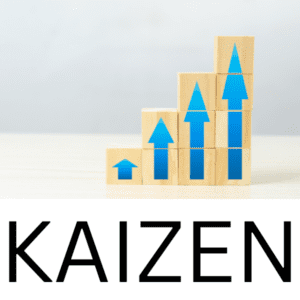
Contents
ToggleIntroduction
In today’s dynamic workplace environments, continuous growth and development are essential for both individuals and organizations to thrive. One powerful tool that has gained popularity in fostering personal and professional development is 360-degree feedback. This comprehensive feedback mechanism offers a holistic view of an individual’s performance by collecting input from various sources, including peers, supervisors, subordinates, and even clients or customers.
What is 360-Degree Feedback?
360-degree feedback, also known as multi-rater feedback or multisource feedback, is a process where feedback about an individual’s performance is collected from multiple perspectives. Unlike traditional feedback methods, which typically involve only top-down evaluations from supervisors, 360-degree feedback incorporates input from a diverse range of stakeholders.
How Does 360 Degree Feedback Work?
The process begins with selecting a set of evaluators who have regular interactions with the individual being assessed. This can include peers, direct reports, managers, and even external stakeholders. These evaluators provide feedback anonymously through surveys or interviews, addressing various competencies, skills, and behaviors relevant to the individual’s role.
Once the feedback is collected, it is compiled and presented to the individual in a constructive manner. The feedback typically focuses on strengths, areas for improvement, and opportunities for growth. It provides valuable insights into how the individual is perceived by others and can help identify blind spots or areas of development that may not have been apparent through self-assessment alone.
Benefits of 360-Degree Feedback:
- Holistic View: By gathering feedback from multiple perspectives, 360-degree feedback provides a more comprehensive and balanced assessment of an individual’s performance.
- Identifying Blind Spots: It helps individuals identify blind spots or areas for improvement that they may not have been aware of, leading to targeted development efforts.
- Promotes Self-awareness: By gaining insights into how they are perceived by others, individuals can enhance their self-awareness and adjust their behavior accordingly.
- Fosters Accountability: Since feedback comes from multiple sources, individuals are more likely to take ownership of their development and work towards improving their performance.
- Strengthens Relationships: Encouraging open and honest feedback fosters a culture of trust and collaboration within teams and across the organization.
READ MORE.
Best Practices for Implementing 360-Degree Feedback:
- Clear Objectives: Clearly define the purpose and objectives of the feedback process to ensure alignment with organizational goals.
- Confidentiality: Assure participants that their feedback will remain confidential to encourage honesty and openness.
- Training and Support: Provide training and support to both participants and raters to ensure they understand the process and how to provide constructive feedback effectively.
- Actionable Feedback: Ensure that feedback is specific, actionable, and tied to development goals to maximize its effectiveness.
- Follow-up and Review: Establish a system for follow-up and review to track progress, revisit goals, and make adjustments as needed.

Conclusion
360-degree feedback is a powerful tool for driving personal and professional development. By leveraging insights from multiple perspectives, individuals can gain a deeper understanding of their strengths and areas for improvement, ultimately leading to enhanced performance and growth. When implemented thoughtfully and with clear objectives, 360-degree feedback can be a valuable asset for organizations committed to cultivating a culture of continuous learning and development.
Matt Styles
Matt Styles is the founder and voice of The Stylish Leader enterprise. Empowering the next generation of leaders, Matt is focused on challenging minds, inspiring hearts, and helping others achieve their highest potential for success.
Read More.

- By: Matt Styles
- Date: July 18, 2024
Kaizen: How To Supercharge Your Success
- 3 min read
- 0 comment

- By: Matt Styles
- Date: July 15, 2024
Lean Culture 101: How To Organize A Framework That Thrives
- 7 min read
- 0 comment

- By: Matt Styles
- Date: July 15, 2024
Emotional Intelligence: How To Revolutionize Your Leadership Potential
- 8 min read
- 0 comment


